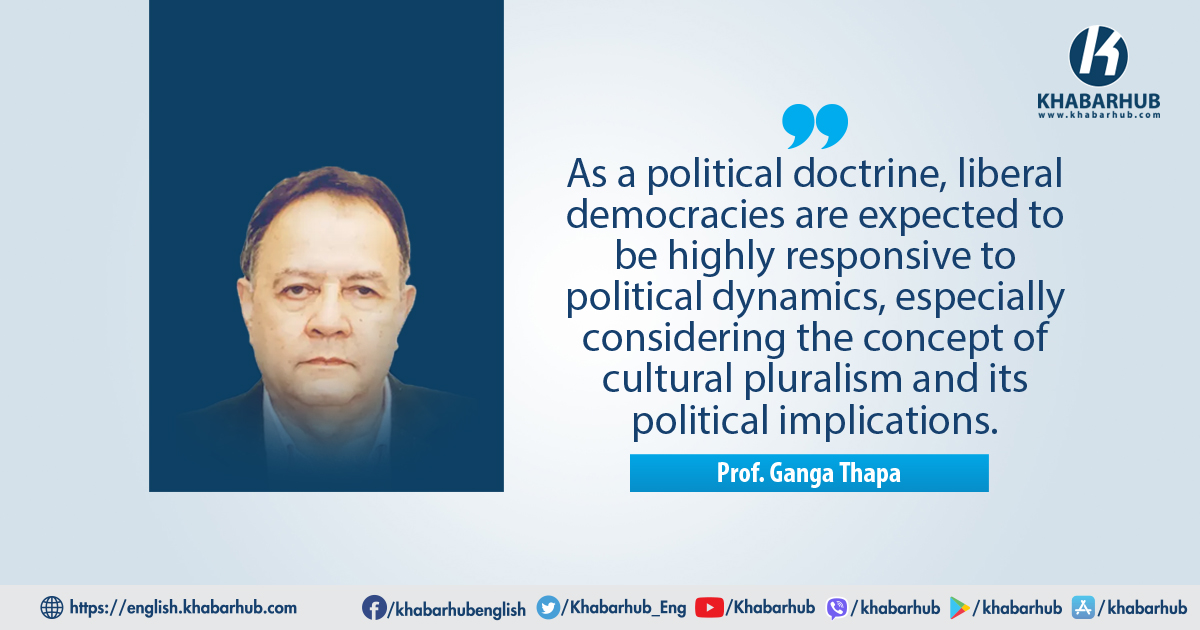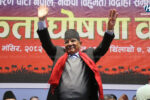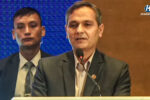Most scholars believe that no political system can fully accommodate the diverse array of interests and indispositions.
Although the concept may be overused in practice, we often consider politics as the election of individuals to government positions where they exercise the power to manage the state apparatus.
Politics involves guiding and running the government, which includes making laws and policies for the benefit of society by holding public office and putting into effect its authority.
However, the oddest aspect of the public life of common folks and federal democratic politics is that both keep deteriorating every day.
The dangerous peril to Nepalis is the autocratic rule of a few and the privatization of power with little to no restraint.
I am convinced that both democracy and Nepal’s sovereignty will not be saved or fulfilled by politics alone, especially when kleptomaniac politicians who may also be described as psychopaths like Pushpa Kamal Dahal, KP Oli, Sher Bahadur Deuba, Madhav Kumar Nepal, and Dr. Baburam Bhattarai, along with their cronies, will continue to seek to satisfy their political duties by upholding kleptocracy.
They keep rationalizing their irreconcilable ideas with a false gospel of political power and hypocrisy and/or humbug, governing the country on their own terms and creating a void in the democratic process.
With few exceptions since Nepal’s foundation in 1768, politicians here do not represent who the Nepalese are or what they aspire to be, and this is not a fairy tale.
Yet in Nepal, the power of the few, serving their self-interests, continues to be built upon the backs of the disempowered many, evoking pity and frustration among them. This, precisely, is Nepal’s situation today.
At the same time, most politicians in Nepal continue to sell false narratives, dehumanizing others, and provoking radical ideologies and activities.
Lijphart, a prominent political scientist and advocate of proportional representation (PR) and multiparty politics for emerging democracies, argues that PR and parliamentary government have a better track record than plurality and presidential system.
A person with prime ministerial ambitions must maintain restraint and patience, focusing on raising innovative ideas rather than wasting oneself on trivial matters or acting as an errand boy.
Unfortunately, Nepali politics has become tainted due to widespread election fraud, abuse of power, and misuse of public money for the politicians’ personal gain.
These politicians manipulate the public and are frequently characterized by brutality and coercion, and perform only the bare minimum, turning politics into a filthy game.
Dirty politics, where decisions made are based on personal or party interests, is akin to what Shakespeare described: ‘What a terrible era in which idiots govern the blind?’
The ruling elites in Nepal not only disregard the country’s development and harm its essence but also make sexist remarks and sow hatred among the people.
It is truly embarrassing that the politicians mentioned above are unlikely to be removed from power unless mass protests occur.
However, the hope lies in a peaceful transfer of power, which is at the heart of democracy. As citizens, we must create collaborative networks that reflect the national majority opinion, allowing people to learn solidarity and share ideas, human values, and a new moral infrastructure with policies that flow from them.
It is time for all Nepalis not just to blame the political liars but to commit to working together for a new future. We must make our voices heard everywhere. I believe this must and can be done.
Federalism is viewed as a safeguard against the overbearing power of a strong, central government.
In federal states, services are provided over wide geographical areas where inhabitants share common identities such as language, culture, and race, and where political and economic benefits are recognizably available to all citizens.
Federalism empowers localities to run most aspects of their affairs according to the wishes of the people. Until now, with the exception of the United States (US), there are few success stories regarding representation, protection of minority interests, voter participation, and control of unemployment under plurality and presidential systems.
However, in the forthcoming US election, former President Donald Trump is running again, and he has declared that if he wins, he will concentrate all executive power under his direct control in order to decide which departments and agencies should be rewarded or punished. What a dangerous irony we might be witnessing.
This would allow citizens to make retrospective judgments of those who exercise functions of government. Of particular importance are also the procedures that determine how representatives are chosen.
By way of adding an afterthought, I am not surprised by Nepal’s democratic exercises; however, I do get flabbergasted when I find out how quickly Gagan Thapa’s reputation is going down the drain.
A person with prime ministerial ambitions must maintain restraint and patience, focusing on raising innovative ideas rather than wasting oneself on trivial matters or acting as an errand boy.
It’s shameful when a youthful member of parliament from the Nepali Congress, not excluding Gagan Thapa, seems to be acting as an idol worshipper of Arju Deuba, the spouse of Sher Bahadur Deuba, a five-time Prime Minister of Nepal.
Sher Bahadur Deuba is considered an incapable leader, and Arju Deuba is regarded as one of the most corrupt women in Nepal’s political and economic history, second only to Queen Rajya Laxmi (1814-1900), the spouse of King Rajendra (1813-1881), who was also described as ambitious for power and corrupt.
There is perhaps a chance to radically change by eliminating social and economic inequality, addressing issues that include the political and economic emancipation of citizens, and dispensing a measure of social justice.
As a political doctrine, liberal democracies are expected to be highly responsive to political dynamics, especially considering the concept of cultural pluralism and its political implications.
However, in the Nepali context, a range of political reforms is required, particularly those that enable the public to exert influence over the systems and individuals who play prominent roles in political affairs.
This would allow citizens to make retrospective judgments of those who exercise functions of government. Of particular importance are also the procedures that determine how representatives are chosen.
(Views expressed in this opinion are the writer’s and do not necessarily reflect the editorial stance of Khabarhub)









Comment